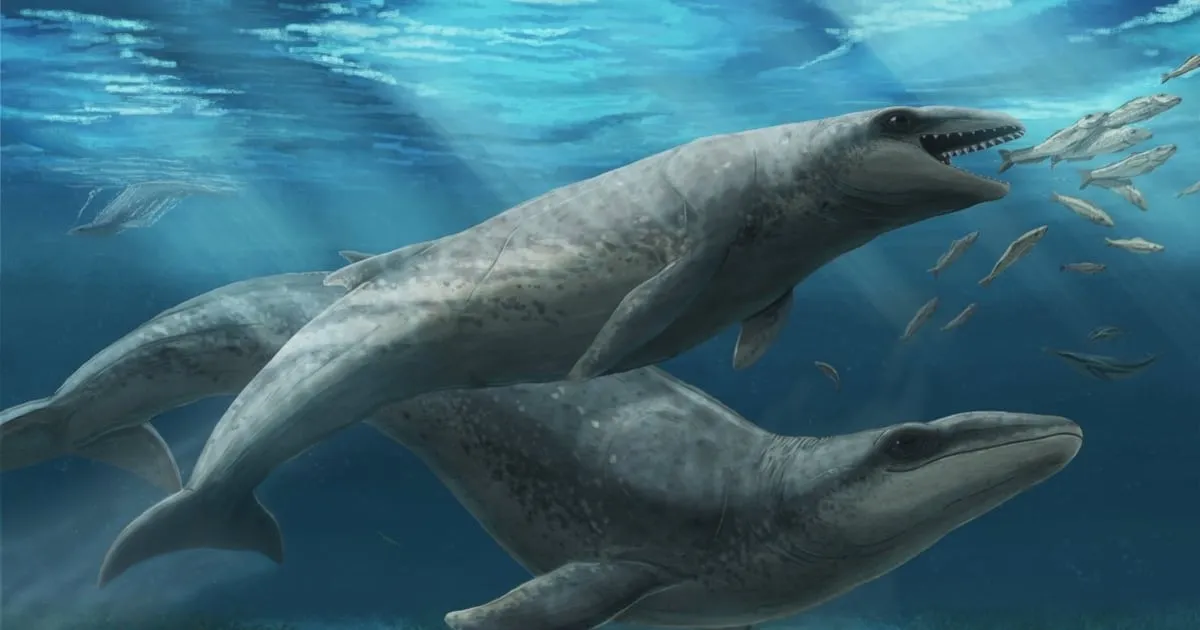
In a remarkable find, researchers have identified a peculiar, prehistoric species of whale, named Janjucetus dullardi, discovered along the shores of Australia. This fascinating creature, which roamed the oceans approximately 25 million years ago, has been described by Erich Fitzgerald, a senior paleontologist at the Museums Victoria Research Institute. Fitzgerald humorously noted that this species "might have looked for all the world like some weird kind of mash-up between a whale, a seal, and a Pokémon."
Measuring less than ten feet in length, the Janjucetus dullardi was a unique underwater beast that featured striking characteristics. According to Fitzgerald, these ancient whales would have had bulbous eyes comparable to the size of tennis balls, razor-sharp teeth, and a distinctly pointed snout. An intriguing aspect of their anatomy includes the possibility of "tiny little nubbins of legs just projecting as stumps from the wall of the body," suggesting an evolutionary link between marine mammals and their terrestrial ancestors.
The first specimen of Janjucetus dullardi was uncovered in 2019 by amateur fossil hunter Ross Dullard, who is also a school principal. This significant discovery included a partial skull, along with ear bones and teeth, providing invaluable insights into the anatomy and lifestyle of this prehistoric whale. In honor of the find, the species has been named after Dullard, celebrating his dedication to paleontology.
Ross Dullard is eager to commemorate this monumental achievement. He plans to host a fossil party over the weekend to celebrate the naming of the Janjucetus dullardi. Reflecting on his journey, Dullard shared, “That’s taken my concentration for six years. I’ve had sleepless nights. I’ve dreamt about this whale.” His passion for fossils and dedication to this discovery exemplify the thrill of paleontological research and the joy of unveiling the mysteries of our planet's history.
The discovery of Janjucetus dullardi not only adds to our understanding of marine life during the Oligocene epoch but also highlights the importance of amateur paleontologists in contributing to scientific knowledge. As researchers continue to study this unique species, it opens the door to further exploration of ancient marine ecosystems and the evolutionary history of whales.